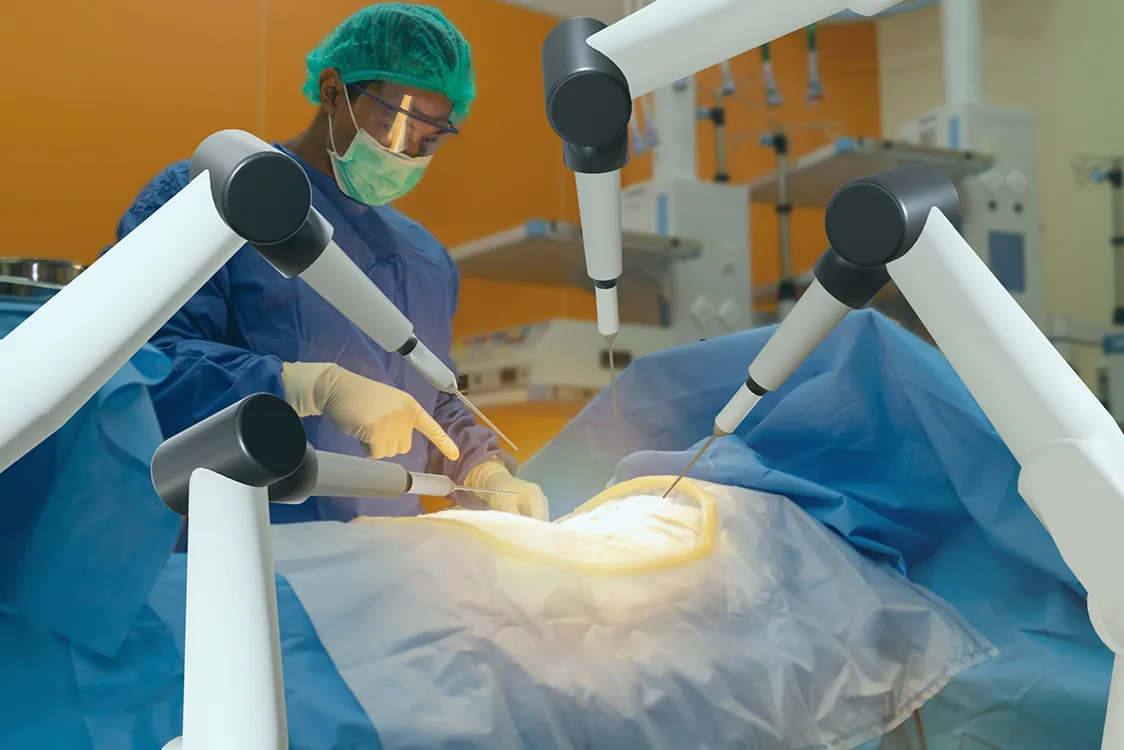According to Dr Anup Kumar, head of the department of urology, robotics, and renal transplant, who carried out the surgery, the patient, a native of Farrukhabad in Uttar Pradesh, had kidney failure and had been waiting for a transplant for the past 5 years.
At the Safdarjung hospital in this city, a 39-year-old man underwent a robotic kidney transplant, which medical professionals claimed was the first such procedure to be carried out at a central government facility in the nation.
Dr. Anup Kumar, head of the department of urology, robotics, and renal transplant, carried out the surgery, the patient, a native of Farrukhabad in Uttar Pradesh, had kidney failure and had been waiting for a transplant for the previous five years.
Doctors said he was receiving hemodialysis. The patient’s wife, aged 34, wanted to donate her kidney, and they were trying to get the procedure in other hospitals. The situation looked a bit rough because the surgery was a bit expensive & other government hospitals had a long waiting time Dr. Kumar says.
And three months ago, the couple made contact with the Safdarjung hospital. According to Dr. Kumar, the patient was posted for a kidney transplant after completing all the protocols, and the donor and recipient had been well evaluated as well.
Dr. Kumar said that a traditional open surgery would have been challenging because the patient was obese. Instead, we chose to perform a robotic kidney transplant.
On Wednesday, the procedure was performed. According to him, open surgery requires a lengthy incision of 12 to 14 cm, leading to infection, pain after the procedure, and the development of a hernia. “The best result was achieved with this patient’s robotic surgery. Four 8 mm incisions were made during the procedure, and the robot was docked over the patient “said the Doctor.
The doctor explained that during robotic surgeries, the surgeon sits at a console, and his finger movements are sent to the robotic arms that carry out the procedure.
According to Dr. Kumar, the renal artery, vein, and ureter were sutured without any bleeding or the need for blood transfusions. Additionally, he said there is no need for post-operative pain medication. Both the donor and the recipient are doing well following the procedure, which took about an hour.
According to protocol, the patient will be released tomorrow, while the donor will be released after five days. Because it requires exceptional proficiency in robotics and renal transplant, this type of surgery is the most challenging robotic and urology surgery. According to Dr. Kumar, there are currently very few facilities in the nation that can perform this, and when they do, it’s typically in private hospitals.
According to him, this is the first robotic kidney transplant to be completed at a national central government hospital. Dr. BL Sherwal, the urology department, the OT team, the nephrology team led by Dr. Himanshu Verma, and the anesthesia team led by Dr. Madhu Dayal were all instrumental in making this surgery possible for Dr. Kumar.





